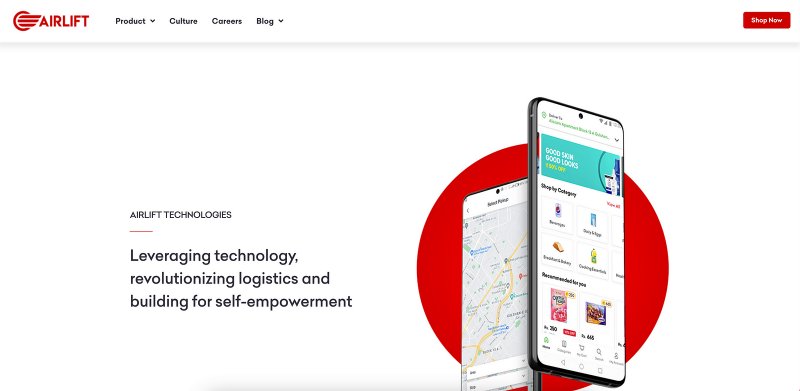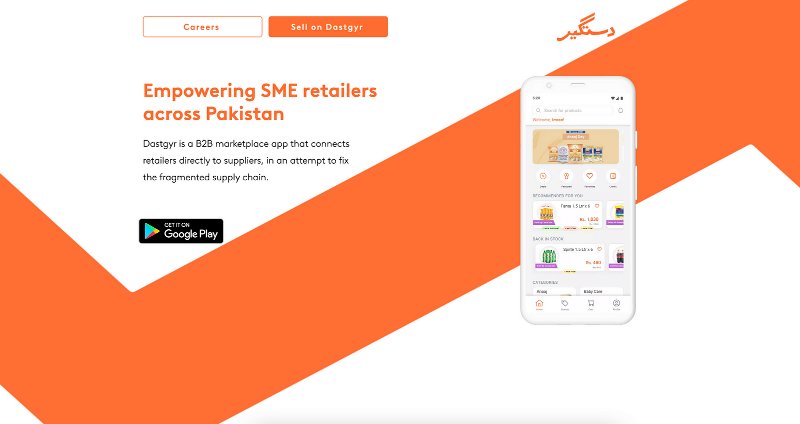About Pakistani
Startups – Present and Future
They Need to Stay In The
Game To Win!
The concept of Pakistani Startups in Pakistan is relatively new.
They have started growing with the advent of technology and tech savvy youth.
Furthermore, the exposure to the international markets has provided a big boost to initiate startups in Pakistan and attract funding locally and globally.
What Numbers Say
About Pakistani Startups
In 2020, Pakistani startups collectively raised almost $66 million. It further improved in the year 2021 with more significant changes.
The momentum began in January 2021 with $13.5 million raised, followed by a surge in funding from February to April 2021 where 7 companies secured a total of $42.6 million.
May and June 2021 then saw startups gather an additional $69.2 million, with a major focus on eCommerce and FinTech ventures.
The spike in investment activity during the first half of 2021 showcased a remarkable growth for Pakistani startups.
According to the data compiled by Data Darbar (a research company) revealed that investments in the Pakistani startups exceeded $125 million across 35 unique deals in the first half of the year, nearly doubling the total raised in the entire 2020.
Pakistani Investors
in Pakistani Startups
During the same period, the Pakistani Venture Capital ecosystem grew positively with local startups contributing to 7% of total deals made in the emerging venture markets of MENA, Turkey, and Pakistan.
Notably, 7 FinTech startups secured 37% of the total funding in Pakistan in the first half of 2021, a stark contrast to the absence of FinTech deals in the same period in 2020.
Foreign VC Investors
in Pakistani Startups
Foreign VC investors also started to make their presence felt in Pakistan, with Kleiner Perkins leading the charge by spearheading Tajir’s $17 million Series A round in June 2021.
Foreign investors dominated the investment landscape in Pakistani startups during the first half of 2021, accounting for 72% of total investors, with 43% of them hailing from the USA.
Airlift Technologies made headlines by securing the largest single private funding round in Pakistan's history in August 2021, raising $85 million in Series B financing co-led by prominent investors like Harry Stebbings from 20VC and Josh Buckley from Buckley Ventures Ltd., with participation from former Y Combinator president Sam Altman.
Other noteworthy funding rounds for Pakistani startups in the latter half of 2021 included
TAG ($12 million),
BridgeLinx ($10 million), and
Dastgyr ($3.5 million).
As investors gradually familiarized themselves with Pakistan and its evolving macro trends, the vast potential for growth in the country became clearer.
The Goldmine
Potential for Pakistani Startups
Pakistan has one of the world's largest youth populations, comprising nearly half of its 230 million people and has a significant portion of its adults unbanked, with approximately 100 million lacking access to banking services.
The increasing affordability and accessibility of 3G/4G phones and widespread internet penetration further enhance Pakistan's appeal for startups and investors alike.
Pakistan's climb to the 4th spot in the World Bank's Ease of Doing Business Index signals positive strides in this direction.
The rapid acceleration of Pakistani startups and the influx of investments highlight a pivotal moment for the country, attracting both founders and investors eager to capitalize on this burgeoning ecosystem's potential.
Challenges For Pakistani
Startups
Despite efforts to showcase sustainability and profitability, many Pakistani startups still struggle to secure investments.
This has also led to a decline in startup funding within the country.
The Pakistani startups are facing numerous challenges as entrepreneurs strive to establish themselves in the global market.
Factors such as economic instability, regulatory barriers, and limited funding opportunities pose significant hurdles for startups.
The global startup funding has also declined sharply, impacting Pakistan as well.
It was USD 462 Billion in 2022
Declined to USD 285 Billion in 2023
The tough macroeconomic conditions in Pakistan, along with regulatory obstacles, have hindered the fundraising efforts of startups.
Additionally, local VCs are facing challenges in raising new funds, further limiting investment opportunities for startups.
Tackling The
Challenges For Pakistani Startups
Expanding internationally, particularly to countries in the Gulf region, has emerged as a strategy for startups to mitigate the impacts of currency devaluation and attract alternative sources of capital.
Pakistani startups are expanding abroad, mainly to the Middle East, as a means of diversifying revenue streams and accessing new funding sources.
Efforts are underway to strengthen infrastructure and create a more conducive environment for startups and investors.
The Hope & Boom
For Pakistani Startups
Forbes released its fourth annual ‘Asia 100 to Watch list’ showcasing small companies and startups in the Asia-Pacific region that have caught investors' attention.
Among those listed startups were Karachi-based DealCart, an online grocery site, and NayaPay, a fintech startup offering a payments processing platform.
The Forbes list featured companies from 16 countries across various industries.
DealCart raised $3 million in seed funding in 2024, while NayaPay secured $13 million in a seed funding round in 2022.
The Pakistani startups aim to cater to Pakistan's growing middle class by providing online grocery services and digital payment solutions.
Additionally, Forbes highlighted the growth and success stories of these companies, emphasizing the diverse range of industries they operate in.
You may read more here
Conclusion
Despite the potential and challenges, the Pakistani startups are the new hope of the country to contribute positively in the economic turnaround.







